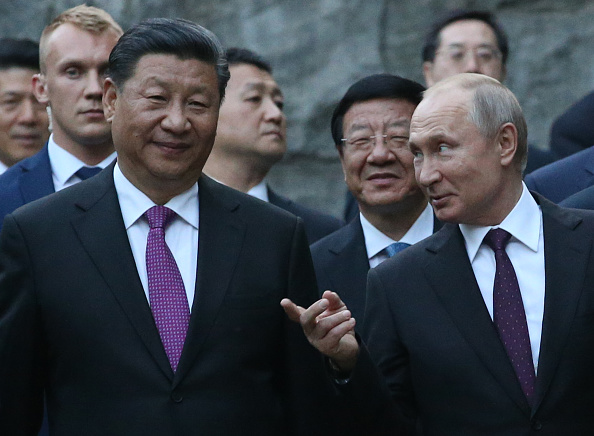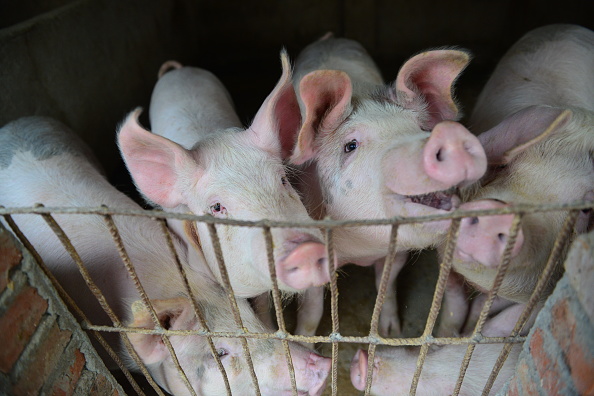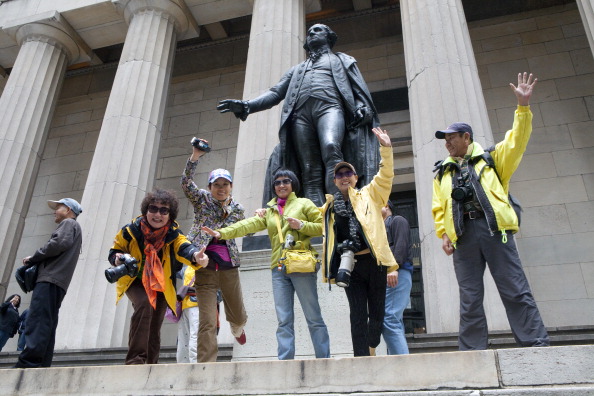
 Panda Diplomacy
Panda DiplomacyPresident Xi Jinping was in Moscow this week, showcasing the strengthened ties between China and Russia and providing a stark contrast to the worsening relations for both countries with the United States and Europe. Referring to Putin as a "deep personal" friend, Xi was honored at the state visit as a strategic partner in a fractured world.
Trade between the two countries has grown to $108 billion, and a number of additional deals worth a whopping $20 billion were signed. Xi also loaned two pandas to the Moscow Zoo. With a shared sense of isolation from the United States and Europe, this visit served as a deepening of economic and military ties between the two neighbors.
Putin took the opportunity to make a thinly veiled criticism of President Trump, calling it a "technological war" and saying that Huawei is being pushed out of the global market by the United States. At a time when global commentators fear a U.S.-China "decoupling," as Li Yan puts it in his latest China-US Focus article, Moscow could very well wedge the two countries further apart.
 Year of the Pig?
Year of the Pig?Swine fever is rapidly spreading across China in the world's biggest animal disease outbreak to date, posing both a health and an economic risk. The disease was first reported in August and has since spread to all of its administrative regions, as well as its neighbors. China's permeable land borders and sizeable trading networks are amplifying the rate of the outbreak in an alarming global health scare.
The macroeconomic impact could be huge, with higher prices of meat and inflation. In response, Beijing has slaughtered millions of pigs to prevent the spread of the hemorrhagic disease in a country that holds half the world's pigs. The disease is harmless to humans but fatal to pigs, and the effects are likely to be felt for pork eaters worldwide.
 Risky Business
Risky BusinessChina has issued a travel warning for the United States, claiming that Chinese citizens have been harassed, interrogated, and robbed. The foreign ministry and embassies have warned Chinese citizens and organizations to increase their vigilance against potential threats, and take preventative measures.
The warnings come amid a rise in tensions over the U.S.-China trade war, and increased accusations of Chinese espionage. The day before, Chinese students were warned of the heightened risks and politicization of studying abroad in the United States.
"For some time, the U.S. has politicized normal China-U.S. educational exchanges using the China threat and Chinese infiltration as excuses," foreign ministry spokesman Geng Shuang said at a press briefing.
The rhetoric in Chinese state media has focused on U.S. trade bullying and hegemony. One recent article in the People's Daily labeled the United States as the "enemy of the world." The travel warning is valid until December 31, 2019.
Prepared by China-US Focus editorial teams in Hong Kong and New York, this weekly newsletter offers you snap shots of latest trends and developments emerging from China every week, while adding a dose of historical perspective.
- 2019-05-31 Trade Diversions
- 2019-05-25 Farm Aid or Band Aid?
- 2019-05-17 Risky Business
- 2019-05-10 Two Steps Forward, Two Steps Back
- 2019-05-03 The Final Laps?
- 2019-04-26 The Great Turbine Caper?
- 2019-04-19 Sowing Seeds of Tension
- 2019-04-12 Slow or Steady?
- 2019-04-05 The Last Mile is The Hardest
- 2019-03-29 From Negotiation to (Smart) Competition
- 2019-03-23 Xi Hits the Road
- 2019-03-16 Proceeding With Caution
- 2019-03-08 Reading the Tea Leaves
- 2019-03-01 The Art of No Deal
- 2019-02-23 The Devil is in the Details
- 2019-02-16 Trade Talks, Round 3: Waiting for Trump-Xi?
- 2019-02-08 Welcoming the Pig
- 2019-02-02 The Final Countdown: One Month Until Trade Talks Deadline
- 2019-01-26 How Slow Will it Go?
- 2019-01-18 Countdown to Trump-Kim: Round Two